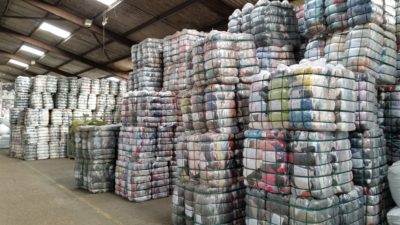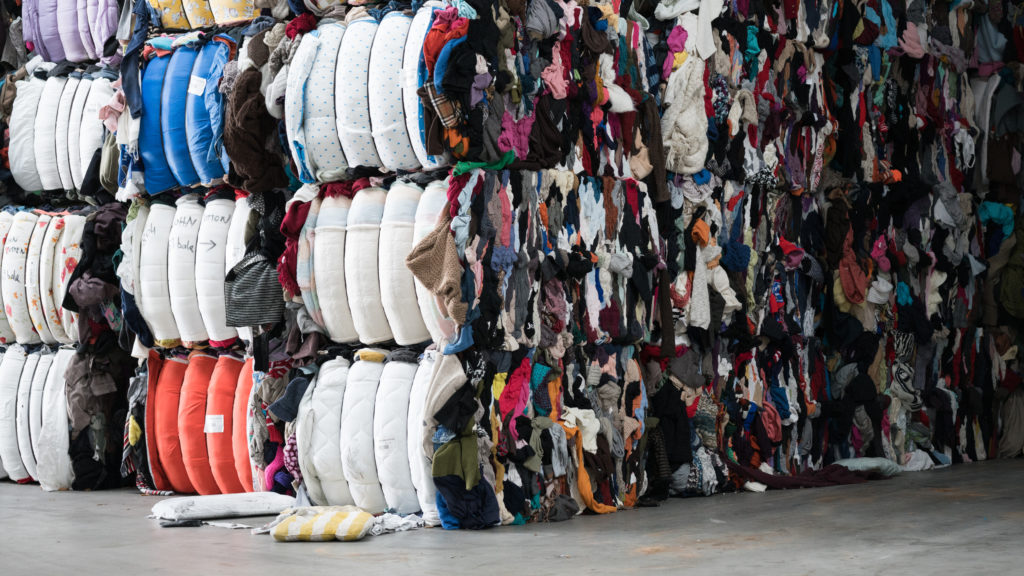This follows fears from paper recyclers earlier this week (see letsrecycle.com story).
The Houthi attacks on commercial vessels in recent weeks have prompted numerous firms to reroute their ships away from one of the world’s busiest shipping lanes and instead sail around the Cape of Good Hope in Africa.
As is often the case in the textile recycling industry, the extent of the disruption varies by merchant. Some have reported that shipping costs have doubled, which means the rebate they are able to pay for used clothing has had to reduce. One even went so far as to say the market has been “drastically hit”, coupled with exchange rate concerns too.

Others however, have said the disruption has had a limited impact on them.
Shipments
The shipping firm Kuehne+Nagel, part of the Textile Recycling Association, pinpointed that 419 vessels (as of 9 January) have so far been affected by the disruptions in the Red Sea region, with an estimated total capacity of 5.65 million TEU (twenty-foot equivalent unit).
They have said as a consequence of prolonged transit times caused by these disruptions, the resupply of containers heading into Asia will experience delays.
Costs
Some textile recyclers have highlighted that while container ships already heading to the parts of the Middle East remain unaffected, shipping lines are now avoiding this route, leading to a surge in costs for companies shipping goods to the UAE (an important textile market) and further afield.
Consequently, the increased expenses are directly affecting businesses involved in exporting unsorted used clothing to the region, resulting in a considerable dent in their operations.

Recyclers have noted that this disruption isn’t confined to specific destinations like East Asia; instead, it has cast a “shadow over the entire textile trade”. They say the spike in shipping costs has led to a reduction in the profitable margin of goods across various markets, impacting the sellable prices in the used clothing and other related sectors.
Resolution
Speaking on the significance of the Red Sea and Suez Canal route, Alan Wheeler, executive director of the Textile Association, said: “The used textile trade is global with UK businesses selling goods to partners in areas such as East Africa, Dubai and the Far East. The route through via the Red Sea and Suez Canal is vital for trade and any disruption via this route is going to cause delays and additional costs.
“The Textile Recycling Association will continue to assess the situation and liaise with the Government on steps that can be taken by our members to mitigate risks. Of course, what we want more than anything else is a speedy and peaceful resolution to the conflict in the region.”












Subscribe for free